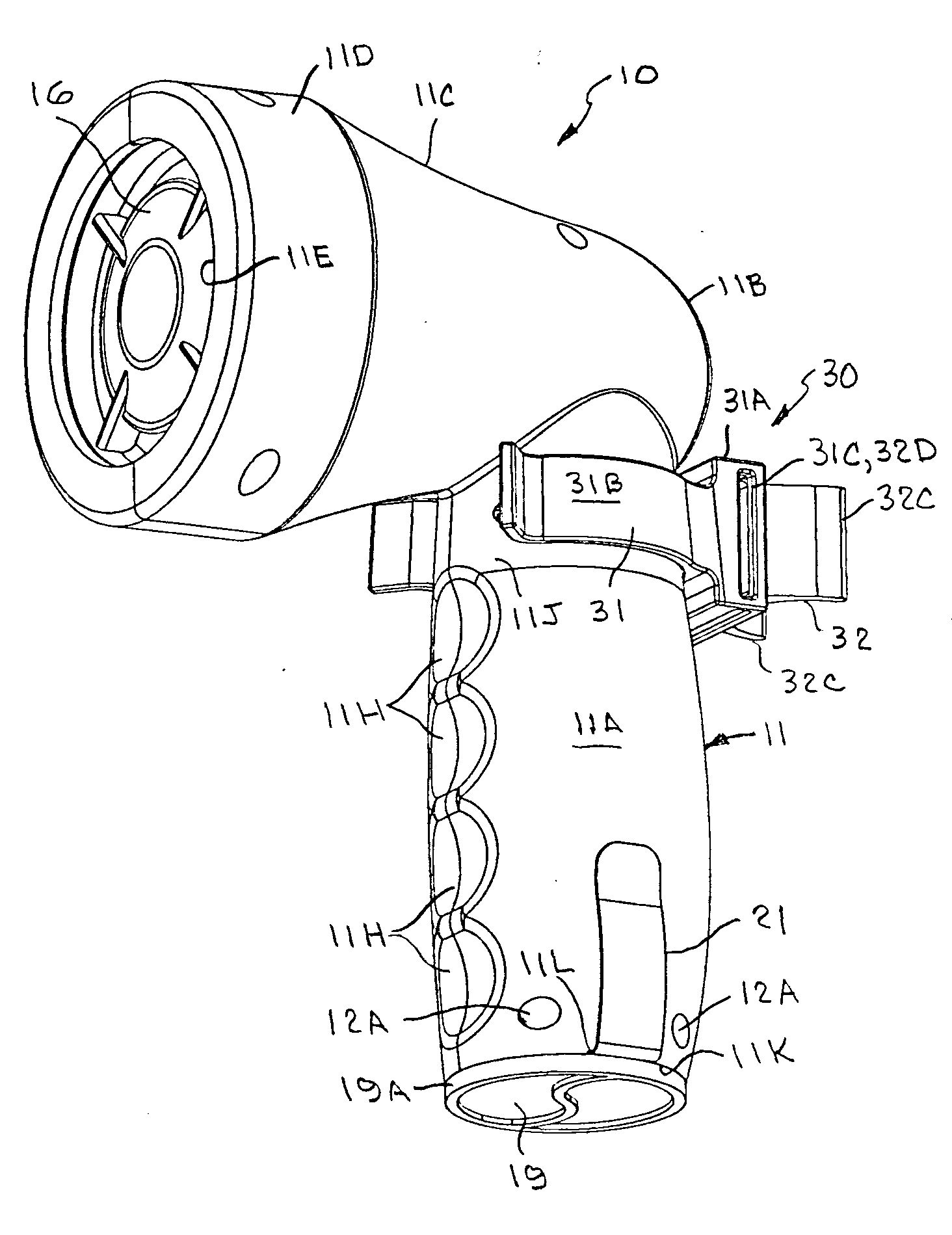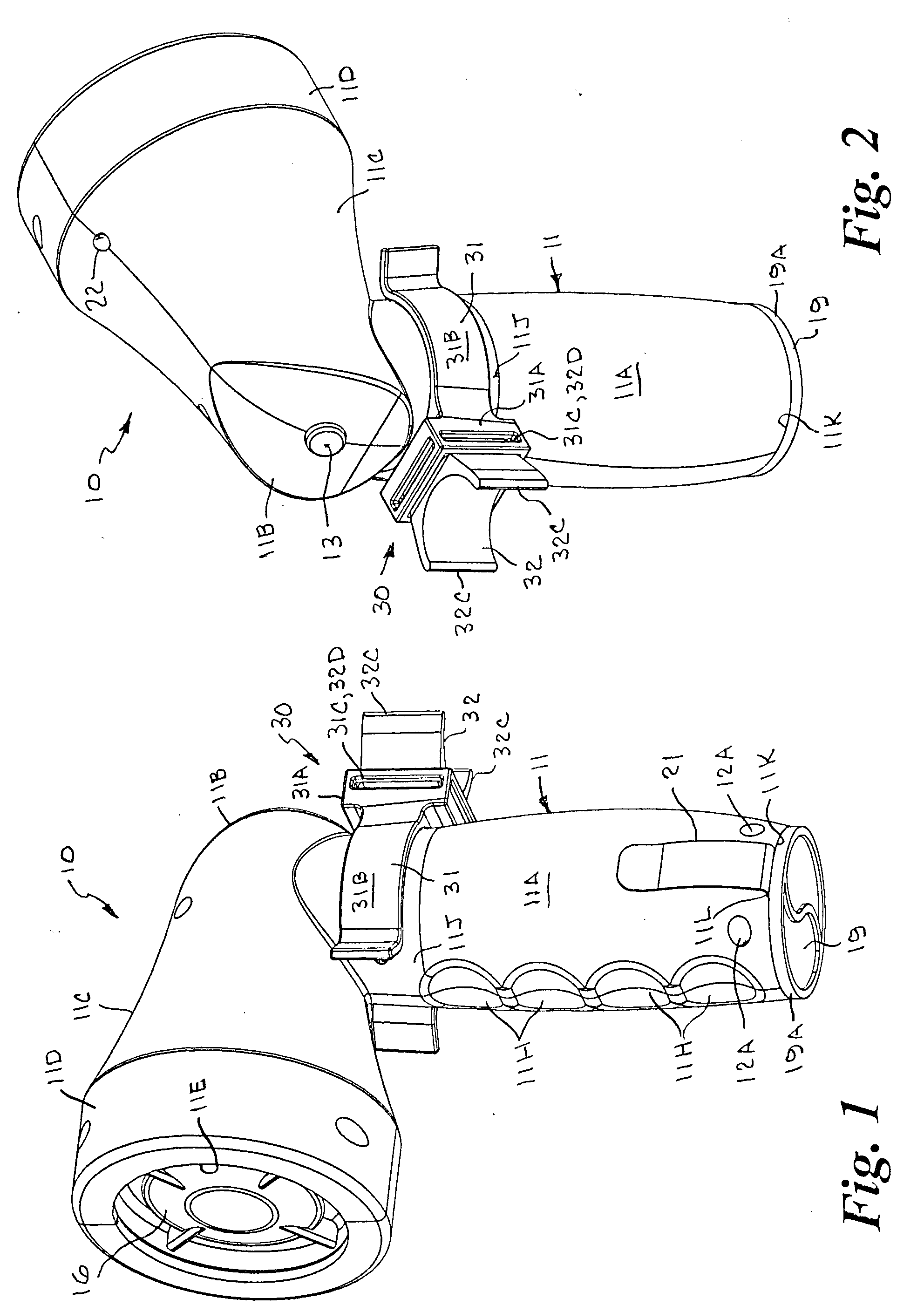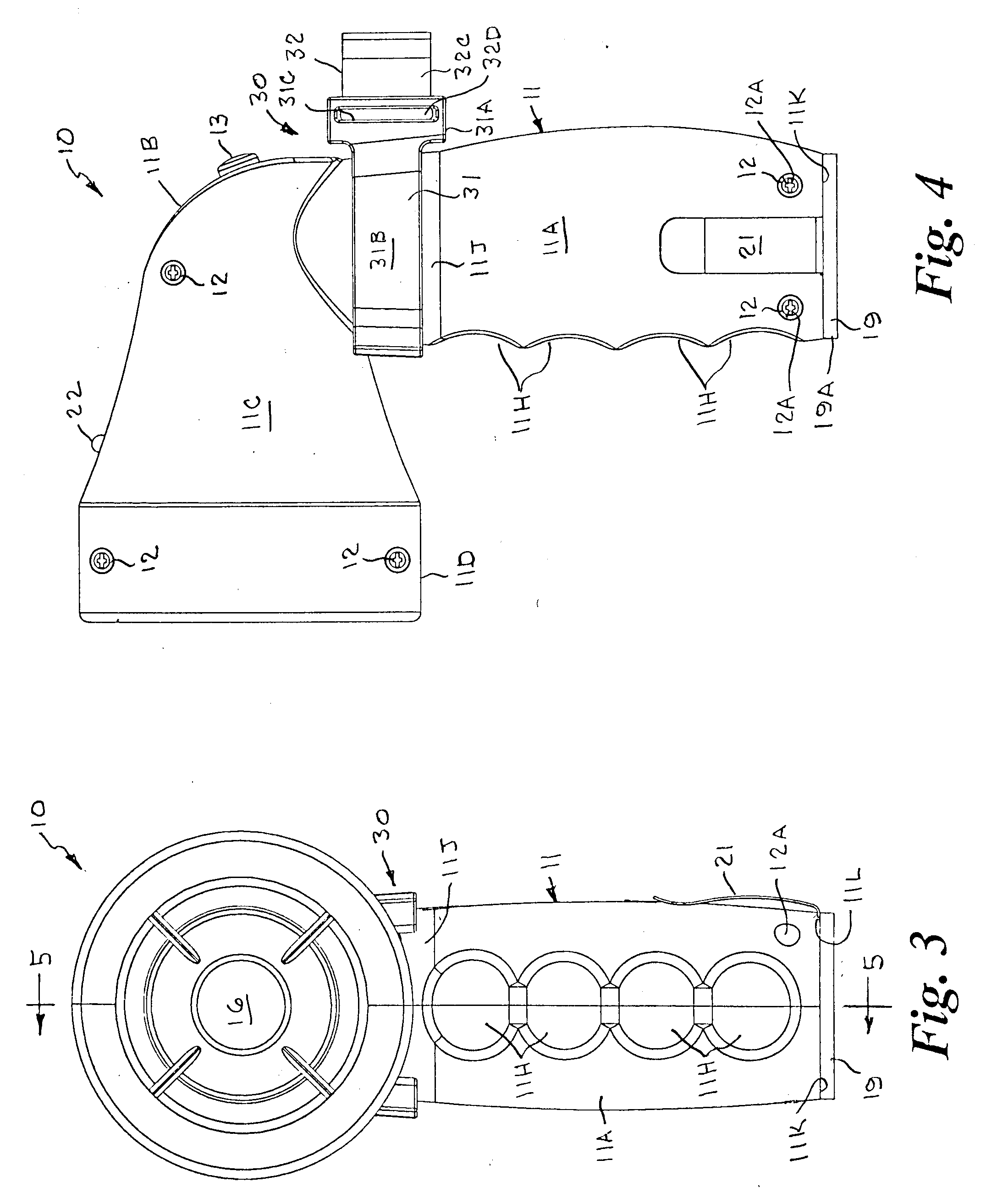Electromechanical Horn For Deterring Animals
a technology of electromechanical horns and horns, applied in the field of sound devices, can solve the problems of increasing the chances of injuries to both individuals and animals, increasing the stress on individuals, and increasing the chance of injuries to individuals and animals. , to achieve the effect of reducing the risk of injury to individuals and animals, and reducing the risk of injury
- Summary
- Abstract
- Description
- Claims
- Application Information
AI Technical Summary
Benefits of technology
Problems solved by technology
Method used
Image
Examples
Embodiment Construction
[0052]Referring to the drawings by numerals of reference, there is shown in FIGS. 1-6, an electromechanical horn device 10 in accordance with a preferred embodiment of the present invention. In the following discussion, the terms, such as top, bottom, upper, lower, inward, outward, downward, above, and below are used to describe the orientation of the horn components as depicted with the device positioned as shown in the drawings
[0053]The horn 10 includes a generally inverted L-shaped housing 11 formed with a longer, generally vertical, hand grip portion 11A having a curved upper rear end portion 11B and a shorter outwardly flared portion 11C extending generally perpendicular from the hand grip portion and terminating in a generally cylindrical portion 11D having an open distal end 11E. The housing 11 is preferably formed by two halves which are releasably secured together by conventional fastener means, such as screws 12. The interior of each of the halves is provided with walls 11...
PUM
 Login to View More
Login to View More Abstract
Description
Claims
Application Information
 Login to View More
Login to View More - R&D
- Intellectual Property
- Life Sciences
- Materials
- Tech Scout
- Unparalleled Data Quality
- Higher Quality Content
- 60% Fewer Hallucinations
Browse by: Latest US Patents, China's latest patents, Technical Efficacy Thesaurus, Application Domain, Technology Topic, Popular Technical Reports.
© 2025 PatSnap. All rights reserved.Legal|Privacy policy|Modern Slavery Act Transparency Statement|Sitemap|About US| Contact US: help@patsnap.com



